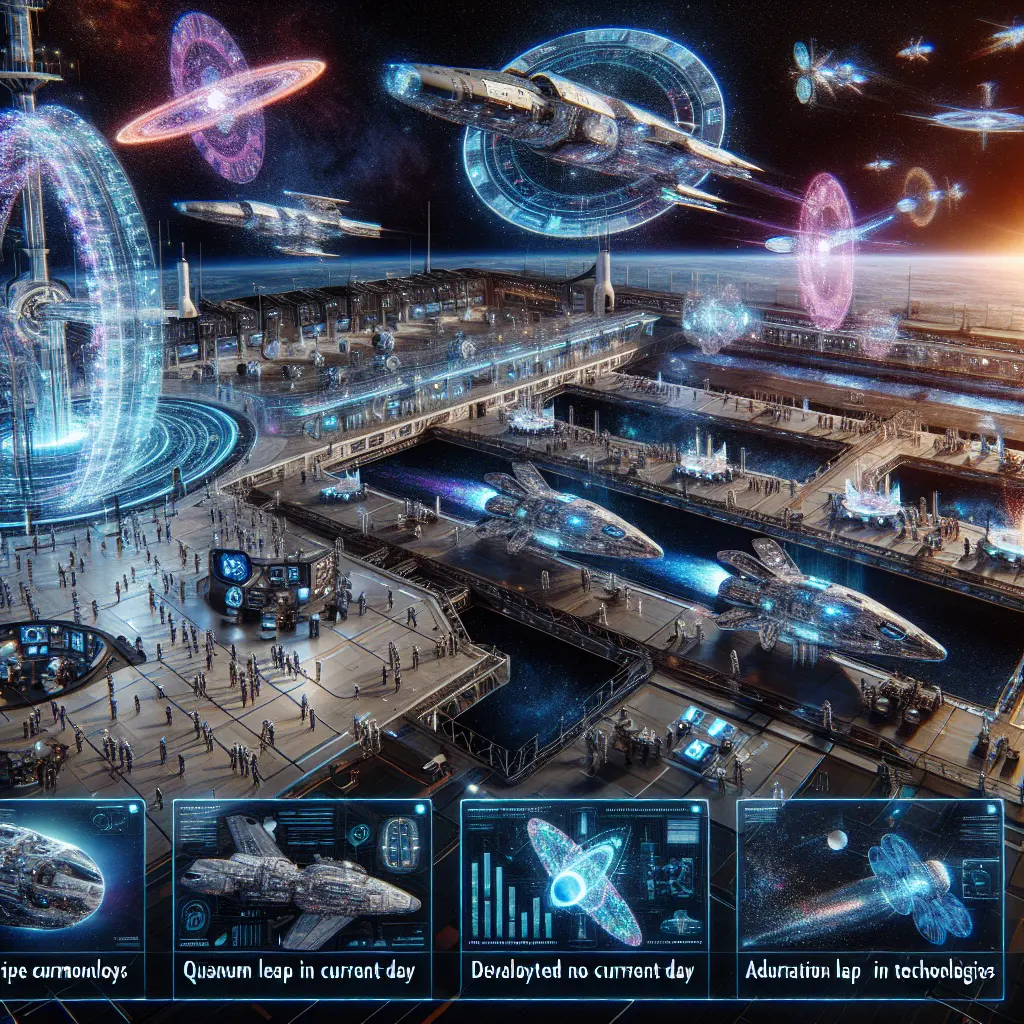
As we stand on the brink of 2024, the landscape of space exploration is rapidly evolving, fueled by a symphony of future space technology and space travel innovations. From zero-gravity technology to high-speed space travel, these advancements are not just reshaping our dreams but are paving the way to turn them into reality. Let's dive into how these technologies are set to revolutionize the way we explore the cosmos.
Advanced Propulsion Systems and High-Speed Space Travel
The heartbeat of any spacecraft is its propulsion system. Advanced propulsion systems, including nuclear-powered spacecraft, are at the forefront of enabling faster-than-ever travel across the vast expanse of space. These systems promise to reduce travel time dramatically, making interstellar travel more feasible. Companies like SpaceX and Blue Origin are already experimenting with reusable spacecraft that can significantly cut down the cost and increase the frequency of space missions.
Interstellar Travel and Space Colonization
The dream of interstellar travel is inching closer to reality with projects aiming to reach not just Mars but also other potentially habitable exoplanets. Space colonization, especially on bodies like Mars and the moon, hinges on robust space habitat technology and Mars colonization technologies. Concepts like lunar base construction are being refined with international cooperation aiming to establish human presence on the Moon as a stepping stone for further cosmic ventures.
Artificial Intelligence in Space Missions
Artificial intelligence (AI) is playing a pivotal role in transforming space missions. From operating autonomous spacecraft to managing deep space navigation, AI's capabilities are being harnessed to handle complex scenarios that human astronauts can find challenging. AI systems are instrumental in analyzing cosmic data and making real-time decisions, which is crucial for long-duration missions far from Earth.
Quantum Communication in Space
As we venture deeper into space, maintaining robust communication systems becomes imperative. Quantum communication in space offers a solution with potentially unhackable channels and faster-than-light information transfer rates. This technology could revolutionize how data is transmitted across space, ensuring seamless communication between interplanetary networks.
Zero-Gravity Technology
Living and working in space requires adapting to zero-gravity conditions. Innovations in zero-gravity technology are making it easier for astronauts to live longer and healthier lives in space, thereby supporting longer missions and deeper space exploration. This technology also benefits space tourism advancements, where private companies aim to provide unique experiences outside Earth’s atmosphere.
Space Tourism Advancements
Speaking of space tourism, this sector is witnessing exponential growth. With companies like Virgin Galactic and SpaceX at the helm, space tourism advancements are making it possible for non-astronauts to experience the wonders of space. This not only opens new markets but also democratizes access to space, inspiring a new generation of space enthusiasts.
Energy-Efficient Spacecraft
The push towards sustainability is also visible in space technology. Developing energy-efficient spacecraft reduces the reliance on traditional fuel sources, which is crucial for long-term missions. Solar power and other renewable energy sources are being integrated into spacecraft designs to ensure they are sustainable and can operate over extended periods without resupply.
Asteroid Mining Technology
The potential for asteroid mining is vast, offering a way to obtain materials that are rare on Earth but abundant in space. Asteroid mining technology is still in its early stages but holds the promise to revolutionize how we acquire resources, potentially reducing the environmental impact of mining on Earth and providing materials for space infrastructure construction.
Private Space Exploration and Global Involvement
Private space exploration is not just about commercial opportunities; it's about global collaboration. With countries around the world recognizing the importance of space, federal funds are being allocated to support various space-related activities, such as boosting the art from Yukon First Nation in global markets through connections made via space technology platforms.
As we continue to push the boundaries of what's possible in space travel, these innovations offer a glimpse into a future where humanity's presence in space is commonplace. The synergy between advanced propulsion systems, AI, quantum communications, and other technologies will define the next era of human achievement.
In conclusion, the journey of space exploration is filled with complexities yet driven by a simple desire: to reach beyond our known limits. The convergence of technologies from various fields makes this era one of the most exciting times to be involved in space exploration.
With every small step and giant leap, we come closer to understanding not just the universe but also our place within it. Here's to pushing boundaries, dreaming big, and boldly going where no one has gone before!
Adam Sterling